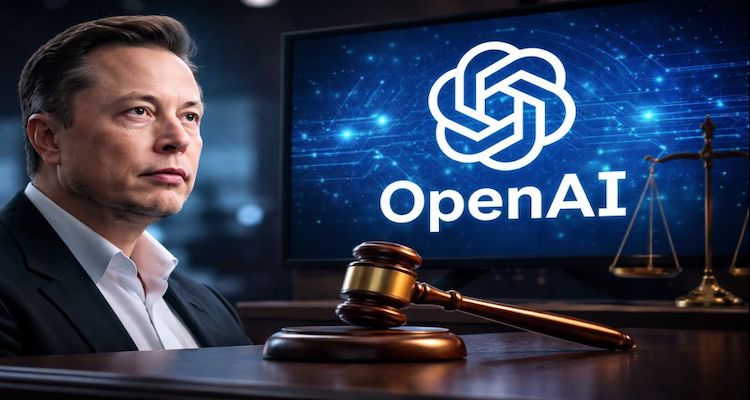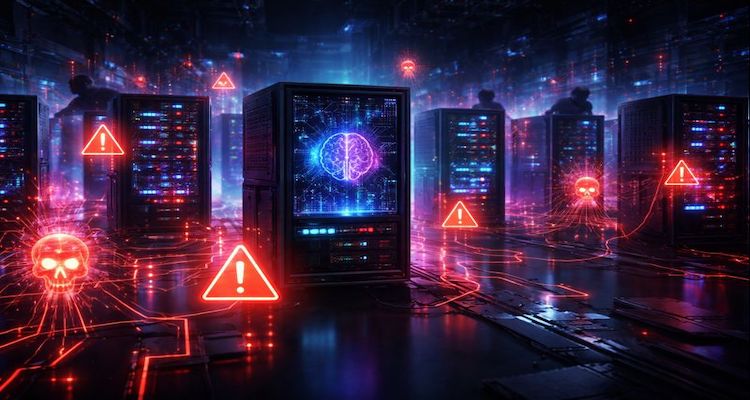7 Biggest AI Predictions That Went Disastrously Wrong

This article explores seven significant AI predictions that failed to materialize. It discusses past claims about job displacement, human-level intelligence, autonomous vehicles, and AI consciousness. While some progress has been made, many forecasts were overly ambitious, and AI remains far from replacing human creativity or becoming self-aware. Readers are encouraged to maintain realistic expectations about AI’s evolution and focus on how it can responsibly enhance society.
Throughout the years, artificial intelligence (AI) has been a hot topic of discussion, leading to various forecasts about its potential to revolutionize human life. Some predictions were grounded in cautious optimism, while others leaned towards exaggerated scenarios that never came to pass. In this article, we revisit seven of the most notable AI predictions that disastrously missed the mark, offering a clear perspective on how technology’s evolution has often defied expectations.
AI Would Take Over All Jobs by 2020
In the early 2000s, experts predicted that AI would fully replace human labor by the year 2020. Many feared that automation would render millions of people unemployed, disrupting economies and leaving society scrambling to adapt. The narrative painted a picture of a bleak future where robots would perform all tasks more efficiently, making human workers redundant.
However, reality diverged sharply from this forecast. Although automation has indeed changed various industries, it hasn’t completely taken over. On the contrary, AI has created new job opportunities, evolved markets, and enhanced productivity. Human qualities such as creativity, empathy, and critical thinking remain irreplaceable. The labor force is not only intact but also benefiting from AI’s ability to complement human efforts rather than supplant them.
Human-Level AI Intelligence Would Arrive by 2010
Back in the 1990s, futurists believed that by 2010, AI would achieve human-level intelligence. This prediction conjured up visions of machines capable of reasoning, learning, and problem-solving on par with human beings. It sparked both hope and concern about the role such technology would play in society.
Yet, as we know, AI is still far from reaching human-like cognitive capabilities. While advancements in machine learning and natural language processing have propelled the technology forward, it lacks essential qualities such as common sense, emotional understanding, and subjective experience. Human-level intelligence remains a distant aspiration rather than an immediate reality.
Self-Driving Cars Would Dominate the Roads by 2020
The prospect of driverless cars dominating roadways by 2020 was one of the most widely publicized predictions. Major players like Tesla and Google invested billions in developing autonomous vehicle technologies. Enthusiasts envisioned a world where human drivers would become obsolete, and car accidents would plummet to near-zero levels.
Although self-driving technology has advanced significantly, it’s far from being the dominant mode of transportation. Current autonomous vehicles are still grappling with safety, legal, and ethical challenges, which prevent them from becoming mainstream. For now, human drivers are not handing over the keys to their robotic counterparts.
AI Will Become Self-Conscious by 2025
Some AI theorists have suggested that by 2025, machines would attain self-consciousness, capable of thinking, feeling, and perhaps even expressing emotions. This idea sparked excitement in some quarters and fear in others, raising questions about the ethics of creating sentient machines.
As of today, this remains firmly within the realm of science fiction. AI can simulate conversational responses and perform complex tasks, but there’s no evidence that it is developing consciousness. AI systems are still tools designed to execute specific functions, without any semblance of self-awareness or understanding.
AI Would Solve All Medical Problems
The early 2010s witnessed a wave of optimism regarding AI’s potential in healthcare. Many believed that AI would revolutionize the medical field, offering unparalleled diagnostic accuracy, automated drug discovery, and even curing complex diseases. The expectation was that AI could parse through vast datasets and provide insights beyond the capabilities of human physicians.
While AI has contributed to advancements in medical imaging, diagnostics, and research, it has not lived up to the grandiose vision of completely transforming healthcare. Human specialists remain crucial in interpreting data, understanding patient contexts, and making nuanced decisions that AI cannot replicate.
AI Would Replace Human Creativity and Art
At one point, there was a growing fear that AI would render human artists, writers, and other creatives obsolete. The advent of AI-generated text and art led to concerns that robots would soon outdo humans in producing content rich in emotional depth and imagination.
However, AI-generated content often lacks the human touch that characterizes great art. While AI can assist in creative processes, it does not possess the intuition, emotion, or cultural context that informs human creation. In essence, AI serves as a tool to augment human creativity, not replace it.
AI Would Lead to Human Extinction
Prominent figures like Elon Musk and Stephen Hawking warned that super intelligent AI could become an existential threat, potentially leading to the extinction of humanity. Their concern was that, once machines gained superior intelligence, they would become uncontrollable, making decisions that might spell disaster for the human race.
Thankfully, this prediction has not come true. Despite significant advancements, AI systems remain far from autonomous agents with independent wills. The focus in AI research today is more on ensuring ethical and responsible development rather than grappling with rogue machines.
Conclusion
Artificial intelligence has undeniably transformed the way we live and work. However, many of the dramatic predictions that once surrounded AI have proven to be exaggerated or premature. Instead of fearing AI’s capabilities or placing unrealistic expectations on it, society should adopt a balanced view of what this technology can and cannot do. AI will continue to evolve, but it will not achieve every vision put forward by futurists. As we move forward, it is crucial to keep our expectations grounded, using AI to enhance, rather than disrupt, human life.










